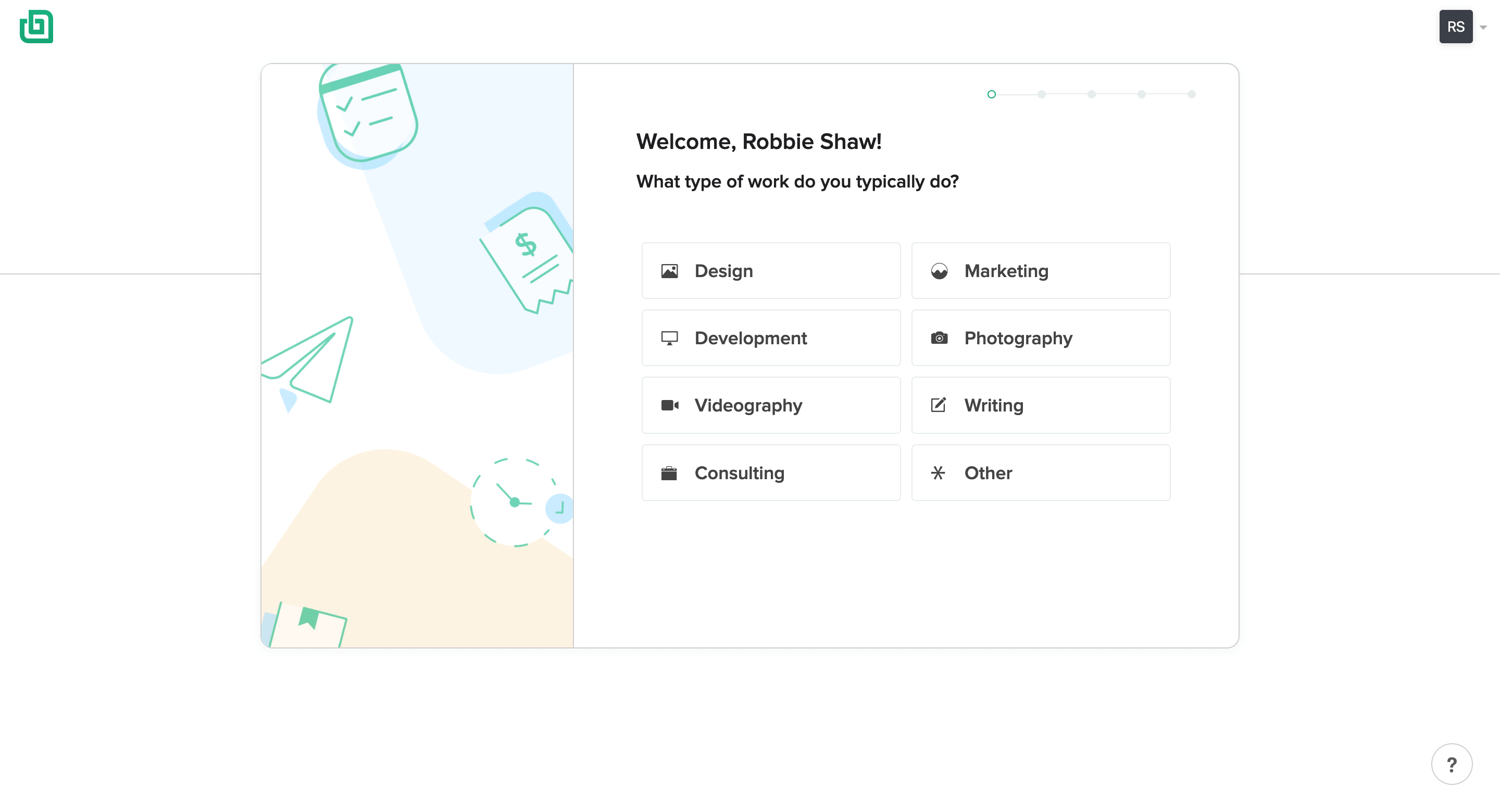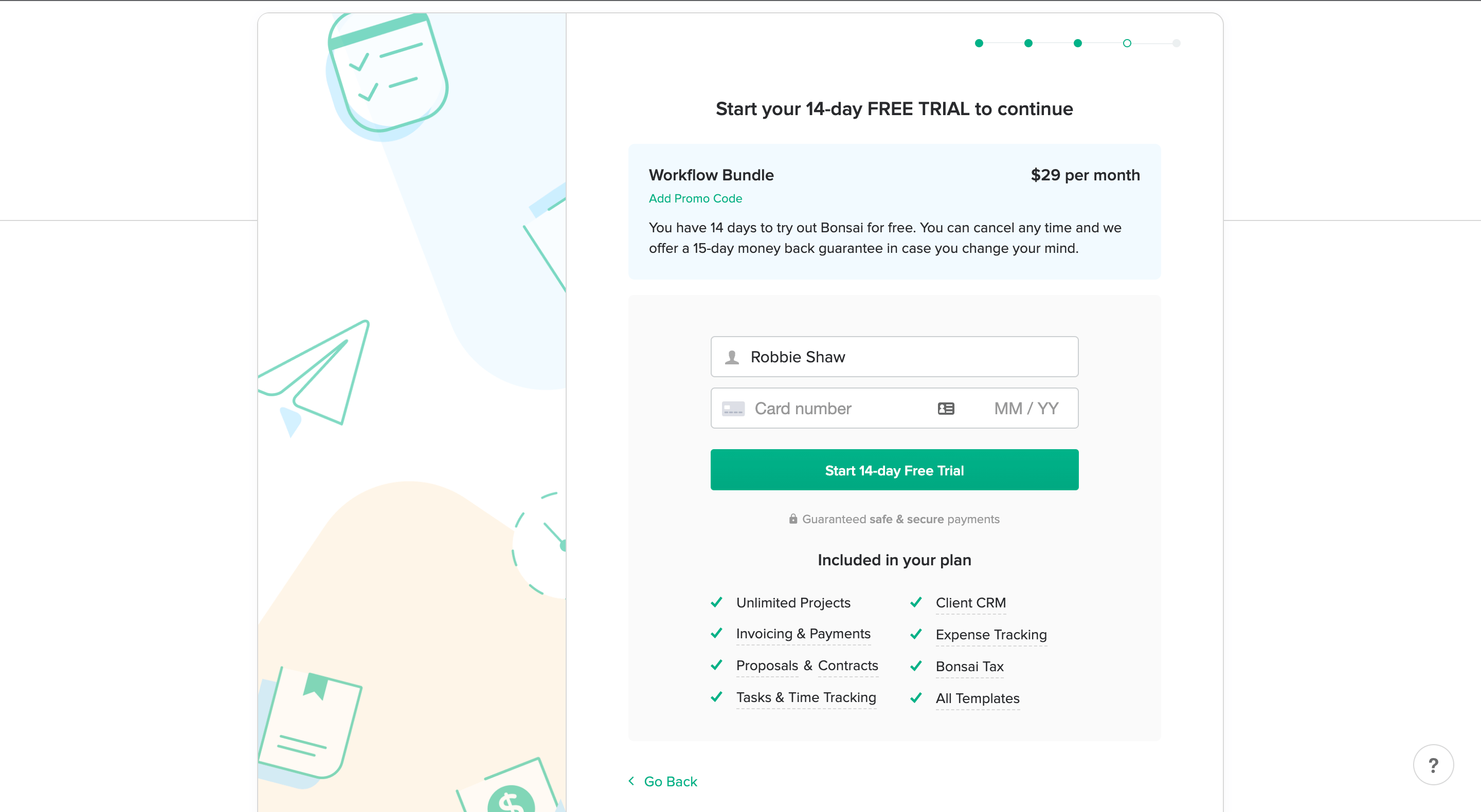A business bank account is not legally required for sole proprietors, but it is highly recommended for effective financial management and IRS compliance. Having a separate account helps in organizing expenses, establishing business credibility, and simplifying tax filing. It also aids in building business credit and accepting credit card payments. Opening a business account early can prevent future financial complications as your business grows. Consider using platforms like Bonsai for seamless account management. Ultimately, a dedicated business bank account is a strategic move for any sole proprietor aiming for long-term success.
A lot of new fsmall business owners ask: does a sole proprietor need a business bank account?
Well, no--you do not have to legally have a business checking account. You can use your personal checking account for any business transactions if you are not incorporated.
Although you may not need to have a separate business bank account as a sole proprietorship...there are several reasons lawyers and accountants strongly recommend having a different account.
In this article, we'll review why having a separate business bank account (before your business grows) is a smart decision to make before your business grows into an LLC.
Note: If you want to set up a business checking account at no cost, then try Bonsai's business account. Our easy-to-use business account is a great way to save, spend, organize, and manage your business funds. Connect it to Bonsai Payments or other sources to get paid directly to Bonsai's business account. Sign up today.
Why You Should Have A Separate Business Checking Account
One of the first things you should do when starting a business as a sole proprietorship is to open a business checking account. As a general rule, using one to keep your business's money and records separate from your personal banking is always a good idea. In fact, the IRS recommends keeping separate business and personal accounts for easier tax management.
We'll dive deeper into exactly why you should consider a separate bank account below.
Organized Expenses
A separate personal and business finances account helps with sorting out expenses when tax season comes around. After all, you'll want to see a clear distinction between personal expenses and business-related ones to prevent confusion with the IRS.
A business bank account does just that. It sets clear lines of business and personal finances separate.
When tax time arrives, you'll be able to see detailed records of business expenses like rent, vehicle, insurance, business loans, and restaurant or business meeting costs. If your expenses are mixed with personal bank accounts, it could be a major headache if you get audited by the IRS.
You can collect receipts in the account, as well as write checks for expenses much easier than if you’re attempting to do it all through a personal account.
Not to mention, having your business and personal assets separate will protect both your personal and business credit score.
Credibility
As a solopreneur, you know the importance of professionalism for your small business. Just like how you would create nice-looking business cards, a sleek website, or a clean logo, using a business bank account to handle transactions or payments makes you look like a legitimate business. Having business accounts builds trust with your clients and suppliers.
Accept Credit Card Payments
If you were to open a business bank account, you'll be able to accept credit card payments. Since it is not a commercial account, with a personal bank account, you cannot accept credit cards.
Having the ability to accept credit cards seamlessly will help you grow your business quicker.
Establish Business Credit
By opening a business bank account, you'll build a credit history or a relationship with a bank. By having a prior history of business credit, you'll be able to qualify for small business credit cards and even get approved for business loans.
Note: If you form a Limited Liability Company, corporation, or other separate legal entity, then you must get a business bank account. Otherwise, you could risk your personal savings account/assets from litigation by not having separate bank accounts.
Using Your Personal Bank Account For Business
Some business owners may decide to mix their personal bank accounts with business purchases. Here is a list of disadvantages if you don't make a separate account.
- Give off an unprofessional appearance.
- Unable to conduct banking in the company name.
- Difficult to prove separate transactions for tax purposes.
- Mixing of business/personal funds
- Business name not on checks.
We highly recommend not using your personal account for your business. Opening a business bank account is a very small investment that will save you time and money in the long run. Running into issues with taxes or audits from the IRS are some of the problems you could face by not keeping separate bank accounts. Here's our list of recommended business checking accounts to open.
Bonsai's business account: The Best Sole Proprietorship Bank Account
Bonsai's business account is among the best business bank accounts for sole proprietors. Most banks offer to waive monthly service fees if you meet certain funding or minimum balance requirements. Online-only banks like Bonsai's business account, however, waive monthly maintenance fees.
Discover some of the key benefits of opening a business bank account with Bonsai.
- You'll get access to the best business debit card for self-employed business owners which you can use to withdraw cash (daily limit of $300).
- Organize funds with separate vacation or savings accounts. Easily save and transfer funds between accounts.
- ZERO monthly maintenance fees. You can accept transfers, move money between envelopes, store funds, make payments, and send ACH bank transfers without any fees.
- Can get a physical debit card
- Connect Bonsai's business account as the default payout method for Bonsai Payments for faster transfers
- It's a business bank account that provides some of the best terms
If you want to prepare for the future growth of your business, set up a business bank account today.
We'll quickly go over the steps to open a sole proprietorship bank account with Bonsai's business account. As of right now, only select users in the United States qualify to use Bonsai's business account.
How To Open A Bonsai's business account Business Bank Account
In this next section, we'll walk you through step-by-step how to open a business bank account online with Bonsai's business account.
Click here to begin the process to open a business account.

Step 1: Create An Account
Enter your full name, password, country, and currency to create a business bank account with Bonsai.

Step 2: Answer Some Questions About Your Work
After you create an account, you will be prompted to answer some questions about the work you do.

Step 3: Add Your Credit Card Details To Begin Your Free Trial
Add your billing information to get access to our all-in-one business software product suite and Bonsai's business account.

Step 4: Enjoy Bonsai's business account
Now that you started your free trial, you have everything you need to manage your finances, from payment to tax time and further.
Tips for Separating Your Business And Personal Finances
On top of opening business checking accounts to keep your business finances separate from your personal ones, here are some other strategies you can use.
Apply For An Employer Identification Number (EIN)
An employer identification number or EIN is a nine-digit number assigned to your business by the IRS. It is an identifier used to track your business's tax returns. An EIN would allow you to file your business's income tax return, open a business bank account, apply for a business credit card, and establish your business entity type
Apply For A Business Credit Card
Opening a credit card that you only use for your own business transactions is a great way to separate personal transactions from business ones.
The same principle for opening a business checking account applies here. If you are able to separate your company expenses on a dedicated card, then you’re really distinct on business documentation for expenses.






